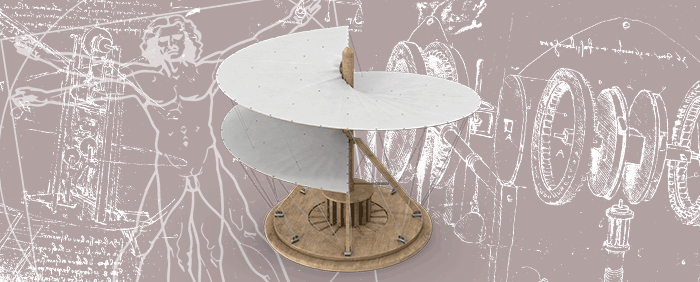The Front End Innovation (FEI) Europe conference was held last week in parallel with the larger ISPIM innovation conference. Celebrating 500 years of innovation since Da Vinci, the conference was fittingly located in Florence, Italy. With over 500 innovation professionals from 50 different countries, the combined conference event was filled with interesting new connections and fascinating talks on a variety of innovation challenges and stories.
Some of the Ignite Exponential team attended the event with Alan Cucknell hosting and chairing the FEI conference room and giving his own talk on innovating smarter in a changing world. Here are some of my key takeaways from the conference and we hope you find them useful:
So what’s a designer doing at an innovation conference?
Innovation and design are tied to each other close than many people would first think – design is no longer purely an activity orientated around an object. The research, strategy, value proposition, experience and the greater ecosystem that all this fits into are all touchpoints within a modern multidisciplinary designer’s domain. Equally, those who specialise in innovation strategy often work closely with designers to help formulate and visualise ideas.
This link was illustrated well by Ralph Hartmeier (Open Innovation Developer at Swisscom) explaining how Swisscom’s Kickbox; a tangible toolbox with various guides helps take employees from a raw idea to a strong pitch. Working with designers helped realise this process as well as helping intrepreneurs later down the line develop their ideas further into successful businesses.
Listen like a hostage negotiator
The value and power of listening is often underestimated, Kirk Kinnell (hostage negotiator for Scotland Police and consultant for Mullender’s) demonstrated how many factors there are to listening properly and how valuable this can be to learn from. We often simply consider the auditory information we receive from someone while we should be looking for: facts, emotions, motivators, values, beliefs, currency and worth. With all these factors in mind, we can identify richer information which helps us identify levers that lead to better solutions.
Being ‘non-customer centric’
There is often the attitude within modern research and development that ideas need to be centred around the customer and constantly developed with them in mind. Interestingly, during Hamilton Mann (Group Director at Thales Group) provided a wonderful provocation to this when he explained the opposite approach of being “non-customer centric”. The idea behind this being that if as a company you focus solely on your existing customer base whilst developing a future product or service you are not keeping your mind open to new customers that you may not have thought of or how your existing customer base may evolve over time.
The doctor doesn’t always know best
Alan Cucknell (Head of Ignite Exponential) gave a creative talk linking personal life experiences to innovation for an exponentially changing world. Again there was a clear tension towards challenging conventional thinking within the talk, as he explained the importance of mentioning challenging a doctor’s opinion through personal experience. It is important to challenge expert opinions rather than accept them as gospel. As innovators, our job is to design a new future, rather than extrapolate historical trends from history.
Don’t force it
In my experience of conferences and exhibitions people force interactions to happen with a commercial goal constantly in mind, you may start a conversation with someone new and within a minute they’re trying to sell you something. IPSIM & FEI was very different, there was a sense of community at the conference which was perfectly summed up by an evening networking event with a live band playing and a panoramic view over Tuscan beauty combined with delicious Italian food and drink. The mixed backgrounds of those attending the event from academia to industry meant that conversations were more relaxed and natural. Ironically, I found this led to connections and conversations that were actually more meaningful with people discussing sharing shared their business problems inspired by the conference as well as suggestions for new approaches.
Did you attend the event? If so I’d love to know your thoughts.

